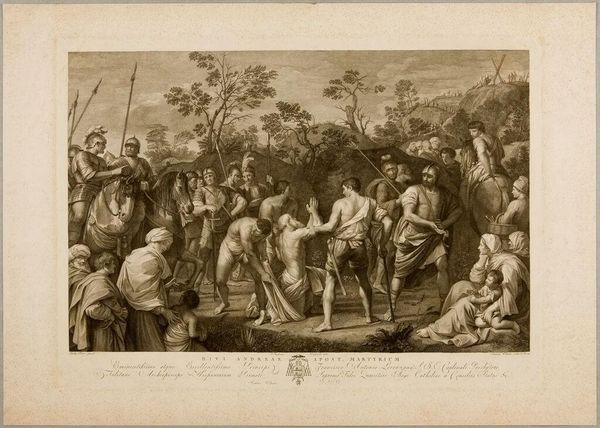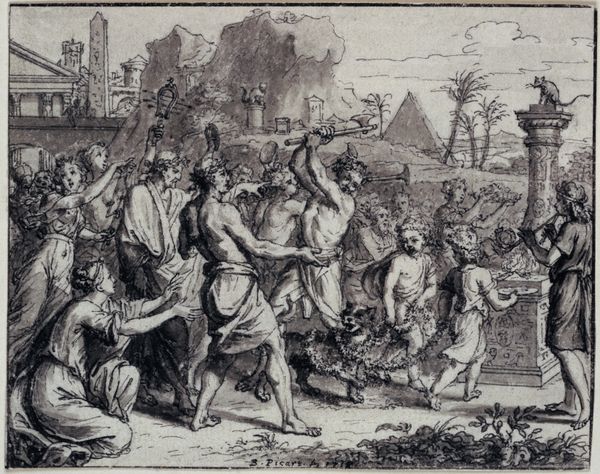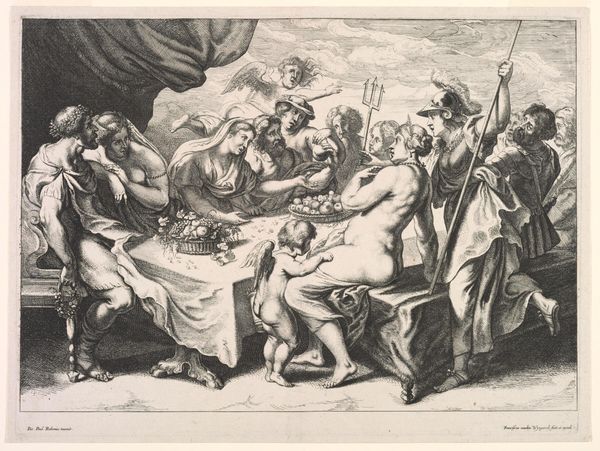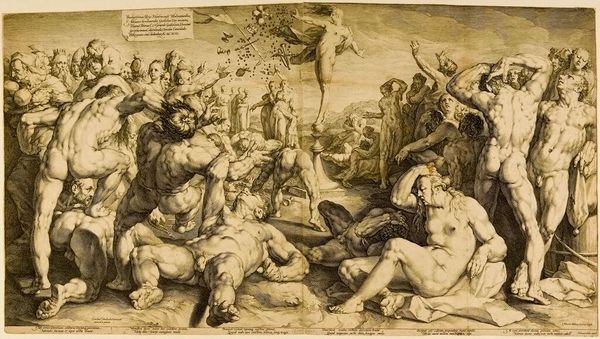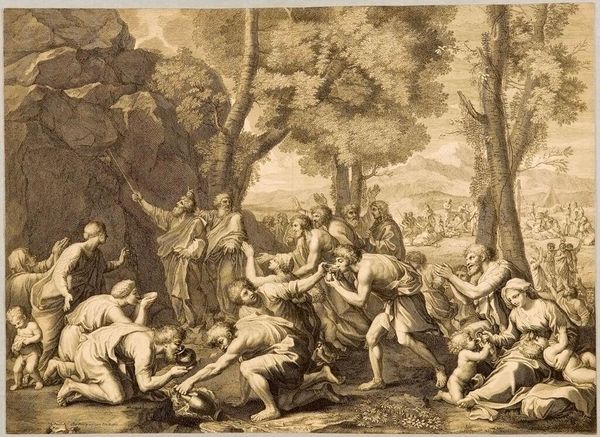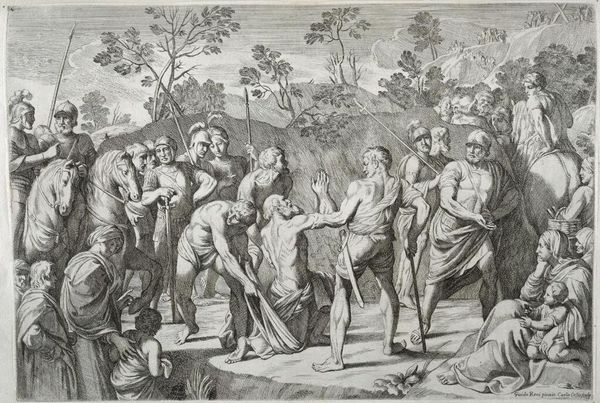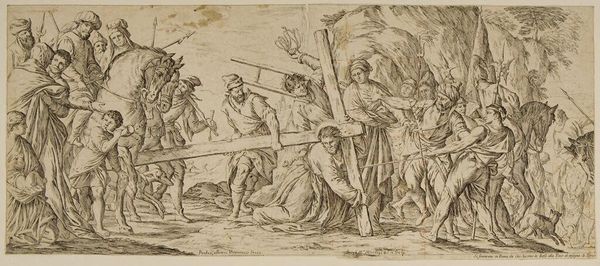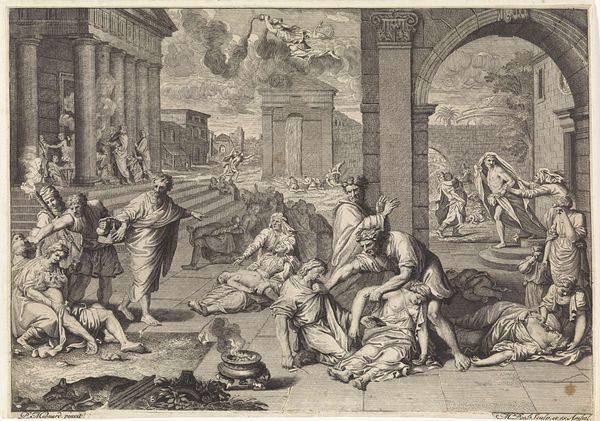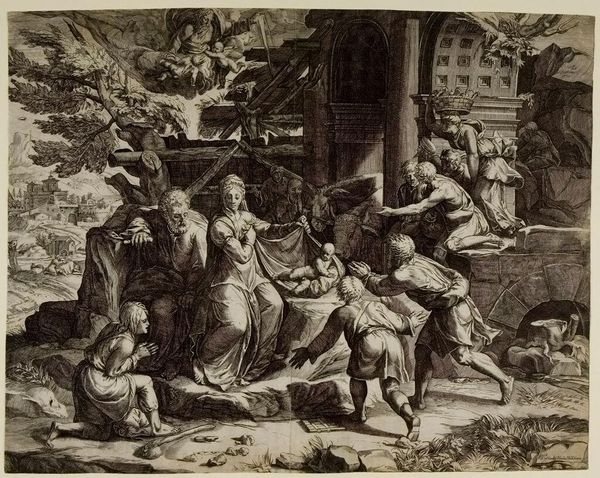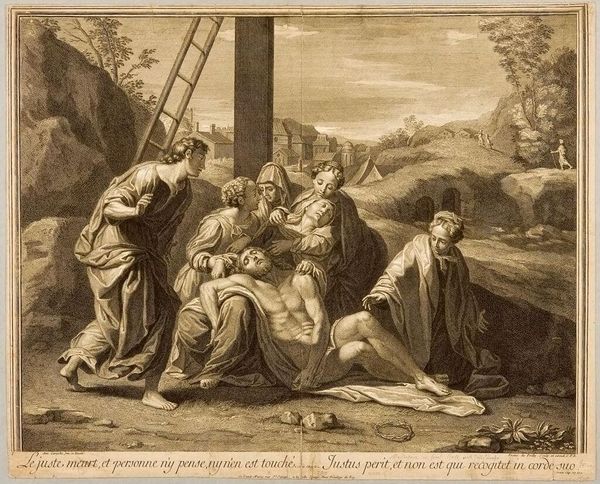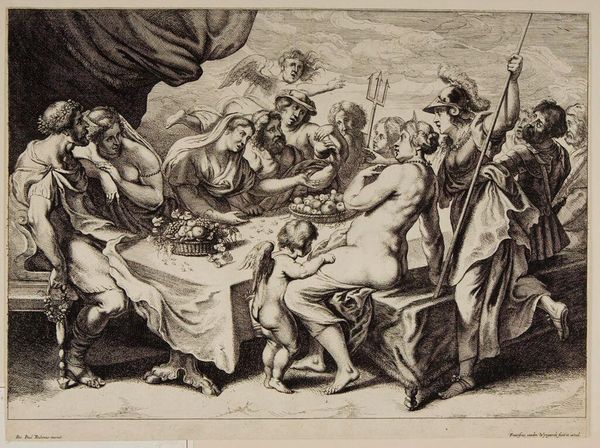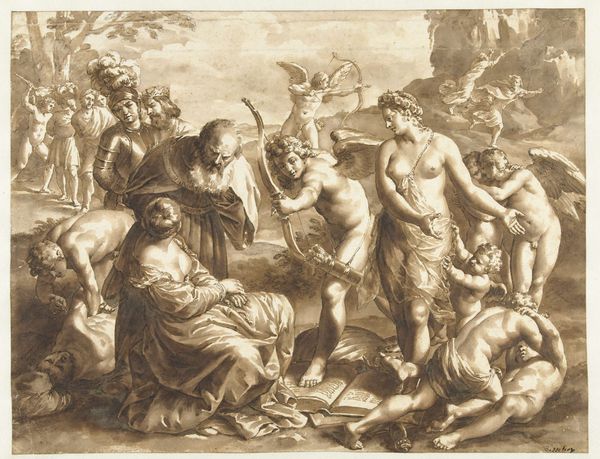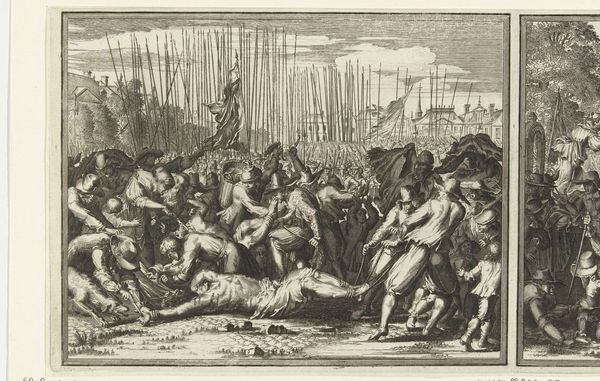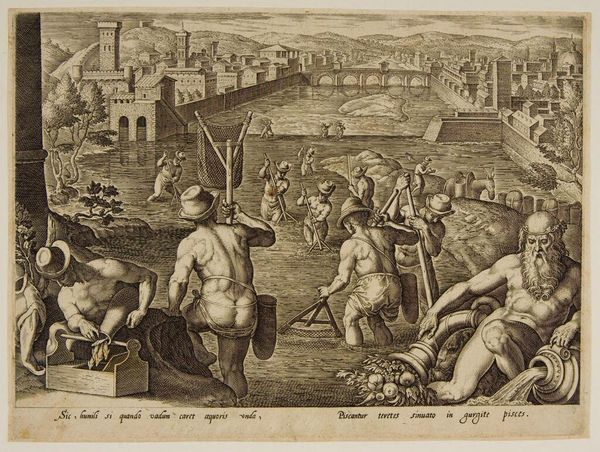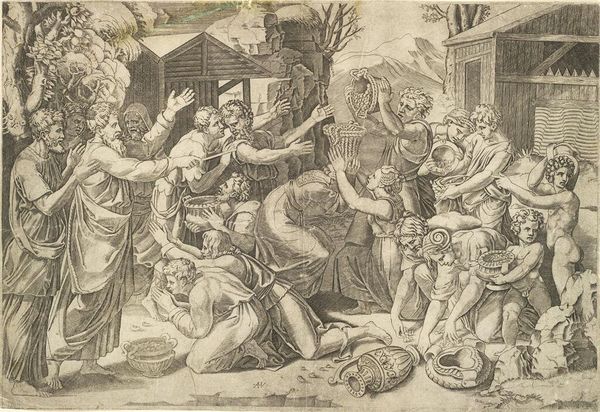
painting, oil-paint
#
allegory
#
narrative-art
#
baroque
#
painting
#
oil-paint
#
figuration
#
oil painting
#
mythology
#
human
#
painting painterly
#
history-painting
Copyright: Public domain
Charles Le Brun created this oil on canvas, Mucius Scaevola Before Porsenna, in France during the 17th century. Le Brun brings a classical story into the orbit of French absolutism under Louis XIV, using the visual codes of heroism and self-sacrifice. Here we see the Roman hero, Mucius Scaevola, who, after failing to assassinate the Etruscan king Porsenna, demonstrates his courage by thrusting his right hand into a sacrificial fire. The theatrical composition, with its dramatic lighting and expressive figures, serves to glorify Scaevola's unwavering loyalty to Rome, a theme that resonates with the period's emphasis on national pride and the power of the state. The painting not only reflects the era's fascination with antiquity but also the use of art as a tool for political messaging. Le Brun, as the leading artist of the French court, played a crucial role in shaping the visual identity of Louis XIV's reign. By studying period texts and institutional records, we can better understand the complex interplay between art, power, and national identity in 17th-century France.
Comments
No comments
Be the first to comment and join the conversation on the ultimate creative platform.
